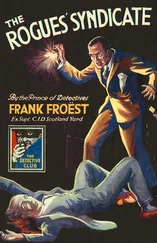Now Peak showed them the mussels. He pointed to the tufts poking out from between the striped shells.
'This is the byssus, a kind of foot. Zebra mussels use it to latch on to surfaces while they're drifting on the current. Technically, it consists of adhesive proteinaceous threads. On this latest breed of mussel, the byssus has been aimed into a propeller. It's a swimming technique that's not so very different from the forward propulsion of Pfiesteria piscicida . Of course, adaptations are known to occur through convergent evolution, but that takes thousands and millions of years. So either the new mussels have kept themselves well hidden; or they've acquired some startling-new abilities overnight. If that's the case, we're dealing with a speedy mutation, since in many ways they're still zebra mussels, only now they seem to know exactly where they're going. For example, the sea-chests of the Barrier Queen were clear of mussels, but the rudder was covered with them.'
Peak described the circumstances of the accident and the attack of the whales on the tug. Although the Barrier Queen eventually pulled through, the strategy of co-operation between mussels and whales had proved as effective as the alliance between humpbacks and orcas.
'That's insane,' said a German colonel.
'Oh, no, it isn't.' Anawak turned to him. 'There's method behind it.'
'What rubbish. Don't tell me that whales made a pact with some molluscs!'
'No, but they definitely joined forces. You'd be in no doubt about it if you saw it for yourself In our opinion, the attack on the Barrier Queen was probably just a test.'
Peak activated the remote, and the screen showed a picture of an enormous vessel lying on her side. High seas pushed waves the size of houses over the hull. Driving rain made it hard to see the detail.
'The Sansuo , one of Japan's biggest car freighters,' Peak explained. 'On its final voyage it was carrying a consignment of trucks. The vessel hit a swarm of mussels off the coast of LA. In a replay of the Barrier Queen incident, the mussels clogged the rudder, only this time conditions were rough. An enormous wave hit the vessel portside, filling it with water. We can only guess what happened next. The force of the breaker must have shunted some of the trucks, which crashed through the ballast tanks and ruptured the side. This picture was taken less than fifteen minutes after the rudder had jammed. After another fifteen minutes, the Sansuo split open and sank.' He paused. 'Since then the list of similar incidents has been growing by the day. Tugs sent to help the vessels are coming under attack, and most rescue missions have to be aborted. The amount of damage caused in each incident is rising all the time. Dr Anawak's right in saying that there's method to this madness. And, recently, we've discovered that it comes in different forms.'
Peak showed a satellite image of a kilometre-long dark black cloud. It was drifting towards the shore from a point some distance out to sea, where it thickened in a grubby red plume. It looked as though a volcano had just erupted in the water.
'Beneath that cloud are the remains of the Phoebos Apolhn , a tanker carrying liquefied natural gas. She's a Post-Panamax vessel – the biggest of her kind. But on the eleventh of April, fifty nautical miles off the coast of Tokyo, a fire broke out in her engine rooms, causing a series of explosions to rip through her four tanks. The Phoebos Apotton was a top-notch vessel, in perfect condition, and regularly serviced. The shipping-line in Greece was determined to investigate, so a robot was sent down to check.'
Flashes of light flickered over the screen. Digits started ticking over, then a snowstorm filled the murky picture.
'An exploding gas tanker isn't likely to leave much intact The Phoebos Apotton was torn into four separate pieces. The seabed near Honshu drops off to a depth of nine thousand metres, and the debris lay scattered over several square kilometres. But in the end the robot found the aft-end of the boat.'
Through the snowstorm they could see some faint outlines – a rudder plate, then the twisted remains of the stern and sections of the superstructure. The robot swung past and dived down, following the line of the hull. A lonely fish appeared on the screen.
'The bottom current carries all kinds of organic material – plankton, detritus, you name it, it's there. It's not easy to manoeuvre at that depth. I won't make you watch the whole film, but this next bit's intriguing.'
The camera was much closer to the hull now. A layer of something coated the metal, stacked in thick clumps. It shimmered in the beam of the floodlights, glowing like molten wax.
Rubin leaned forward in agitation. 'What the hell are they doing there?' he said.
'What would you say they are?' asked Peak.
Jellyfish.' Rubin squinted at the screen. 'Tiny jellyfish. There must be tonnes of them. But why are they sticking to the hull?'
'When did zebra mussels learn to steer? Anyway,' Peak continued, 'somewhere beneath all that slime are the sea-chests. No prizes for guessing that they're clogged.'
One of the diplomats raised a hand hesitantly. 'Er. . . What exactly are the, er…'
'Sea-chests?' He had to explain every darned thing. 'Rectangular recesses that draw in the water for the intake system. They're protected by metal grating to keep out flora and ice. Inside the ship, the pipes branch off and take the seawater to where it's needed – to be distilled, for use in case of fire or, most importantly, for cooling the engines. It's hard to say when the jellyfish settled on the hull. Maybe not until the boat had sunk. On the other hand… Well, imagine the following scenario. The shoal of jellies drifts towards the tanker. They hit the hull in a mass of bodies and, within seconds, the sea-chests are blocked. Water can't get in. More and more jellies pile on top of each other, causing organic mush to squeeze through the grating. Meanwhile, the engine drains the last drops of water, and the pipes run dry. The next thing you know, the cooling system's broken. The engine overheats, lube oil bubbles over, the cylinder heads glow red, and one of the valves bursts open. Red-hot fuel shoots out and triggers a chain reaction – and there's no way of extinguishing it because the system can't draw water.'
'An ultramodern tanker explodes because of jellyfish in her sea-chests?' asked Roche.
It was funny, really, thought Peak. All these high-powered scientists sitting there like disappointed children because the high-tech world had let them down.
'Tankers and freighters are made up of one part technology, the other ancient history. Diesel and rudder engines might be sophisticated machines, but in general they're only used to turn a propeller or move a blade of steel. The navigation system has GPS, but the cooling system relics on a hole in the hull. And why not? The ships float, don't they? It's as simple as that. Now and then a sea-chest gets blocked by a bit of seaweed, but it soon gets cleaned out. If one hole's clogged, there's always another. Nature's never launched an attack on sea-chests before, so why change their design?' He allowed a pregnant pause. 'You see, Dr Roche, if tiny insects launched a concerted attack on your nostrils, your finely tuned, highly complex body would be in danger of collapse. Have you ever stopped to think about that? And that's exactly the problem with all these attacks. No one imagined that such things could happen.'
JOHANSON HAD STOPPED paying attention. He knew the next chapter inside-out. He and Bohrmann had structured the material in preparation for the meeting. It focused on worms and methane hydrates. As Peak carried on talking, Johanson transferred some ideas to his laptop.
Читать дальше












